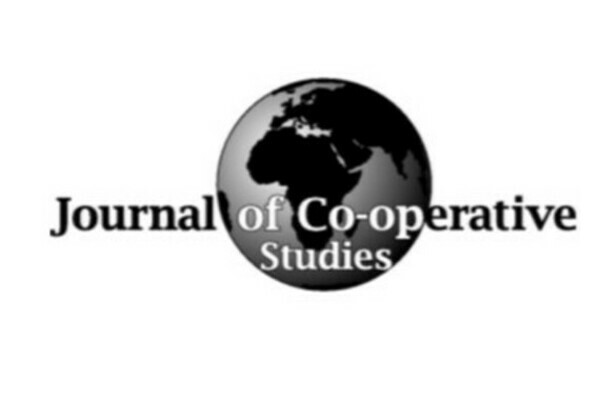Guest editorial
Sonja Novkovic, p. 3
This special edition of Journal is the product of co-operation between the Canadian Association for the Studies of Co-operation (CASC) and the UK Society for Co-operative Studies.
Refereed articles
Co-operative accountability and identity: An examination of reporting practices of Nova Scotia co-operatives
Elizabeth Hicks, John Maddocks, Alan Robb and Tom Webb, pp. 4-16.
Co-operative members benefit in proportion to their economic and social participation in the co-operative. Co-operative purpose is guided by co-operative values and principles. This study looks at the extent to which the content of financial reporting by Nova Scotia co-operatives accounts to members and reflects co-operative specific values and principles.
Do co-operative managers and directors differ in their familiarity with innovative business risk management strategies?
Getu Hailu, Ellen Goddard and Scott Jeffrey, pp. 17-27.
This paper provides results of a pilot survey conducted to compare risk attitudes, understanding of innovative risk management tools and strategies used as insurance protection by managers and directors of agribusiness co-operatives in Canada. Managers and directors are also compared with respect to importance ratings of risk factors. Results indicate that both managers and directors of the sample agricultural co-operatives have limited knowledge of new ways of managing risks. The evidence from this pilot survey suggests a need for support for training and specialised skill development for co-operative decision makers.
The resilience of the co-operative housing model
Jorge Sousa and Jack Quarter, pp. 28-37.
A central feature of the co-operative model is its adaptability to the needs of specific groups that have been disadvantaged by a market-based economy. In this article we discuss the recent conversion of a public housing project in Canada, Alexandra Park, into a housing co-operative, Atkinson Housing Co-operative as a case in point of the resilience of the co-operative housing model. The new co-operative balances residents' need to have greater control with the government's legal responsibility of maintaining a public asset. This is accomplished by utilising a partnership model that has resulted in a hybrid organisation which possesses features from both public and co-operative housing.
Short articles
The Saint Mary’s Master of Management: Co-operatives and Credit Unions Programme
John Chamard, pp. 39-40.
The MMCCU programme at Saint Mary's University in Halifax took in its first students in 2003 and celebrated its first graduates in 2007. As the only graduate level programme in management of co-operatives and credit unions, it has attracted students, faculty and financial support from around the English-speaking world. This paper describes the rationale for the programme and how it has been developed over time.
A personal view of the highs and lows in starting the British Columbia Institute for Co-operative Studies
Ian MacPherson, pp. 41-46.
This short paper describes and analyses the origins, development and objectives of the British Columbia Institute for Co-operative Studies (BCICS). The Institute was established to make a contribution to the development of co-operative studies a research and teaching field, particularly at the University of Victoria and within British Columbia but elsewhere as well. The author analyses the position and status of co-operative studies within universities more generally and offers some reflections on how co-operative studies can be embedded both within academia and within the international co-operative community. He illustrates the potential for the development of theory and practice in co-operation, which, however, is often limited by a lack of resources.
Centre for the Study of Co-operatives, University of Saskatchewan
Nora Russell, pp. 47-50.
This short paper describes the origins, development and objectives of the Centre for the Study of Cooperatives at the University of Saskatchewan, Canada. The centre is an interdisciplinary teaching and learning institute that aims to develop teaching in co-operation, to pursue co-operative research, to undertake independent publication of research and to maintain a resource centre of co-operative materials. The centre has strong link with the cooperative sector in Saskatchewan, which plays a significant role in the economy of the province.
Book reviews
A passion for possibilities: Co-operatives and communities in British Columbia. Edited by Joy Emmanuel.
Reviewed by Rob Boyle, pp. 51-52.
What counts: Social accounting for non-profits and co-operatives. By Laurie Mook, Jack Quarter and Betty Jane Richmond.
Reviewed by John Maddocks, pp. 53-54.
Robert Owen: Social Visionary. By Ian Donnachie.
Reviewed by Naobumi Hijikata, pp. 55-56.










